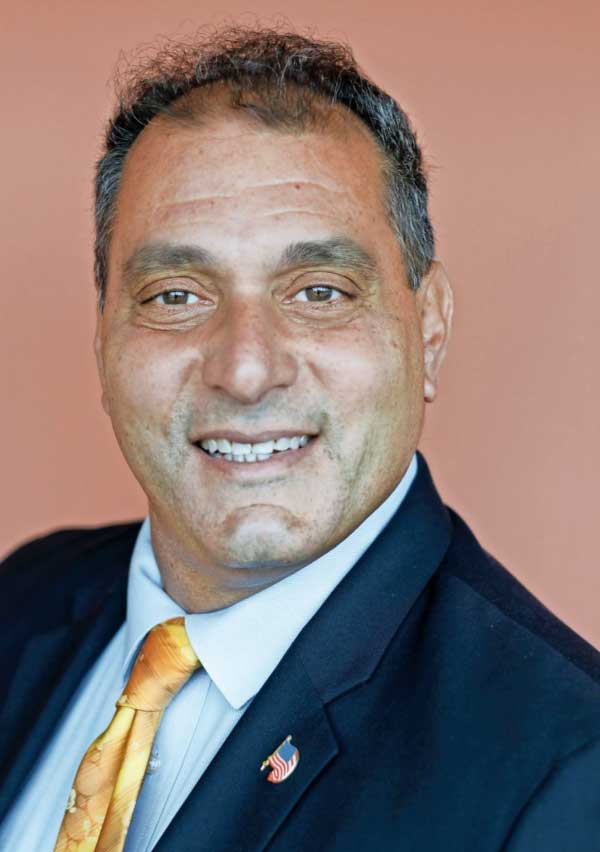By Mallory Wilson
U.S. Sen. Chuck Schumer is advocating for a plan that would ultimately guarantee the accuracy of test results for radium levels in Long Island groundwater, especially near the Navy/ Grumman plume in Bethpage, a swath of highly toxic industrial waste that is steadily making its way underground south from central Nassau County toward South Shore bays, according to a news release.

Schumer’s plan would include a new amendment in “must-pass legislation” to get an independent, second look at the samples of radium levels at the former Naval Weapons Industrial Reserve Plant in Bethpage that is currently being done by Tetra Tech, which has what he described as a “checkered past.” Schumer, the Senate’s Democratic minority leader, said the company allegedly falsified soil tests at the U.S. Navy base at Hunter’s Point in San Francisco in 2017.
Two Tetra Tech supervisors were sentenced to eight months in prison in May 2018 for falsifying soil sample reports, according to multiple news reports in California.
Tetra Tech could not be reached for comment.
“I have asked the Navy to make sure they check for radium in the water supply. Being safe is better than being sorry,” said Schumer at a news conference in July at the Bethpage Water District headquarters. “When it comes to radium levels on Long Island, a guaranteed second look is a sigh of relief.”

Town of Oyster Bay Supervisor Joe Saladino, State Sen. Jim Gaughran, Assemblyman Mike Montesano, Assemblyman Chuck Lavine and officials from the Bethpage Water District also attended.
Tetra Tech Inc. is a Pasadena, Calif., based Navy contractor consulting and engineering services firm that provides services in the areas of water, environment, infrastructure, resource management, energy and international development. The U.S. Department of Justice is suing the company.
An amendment in the upcoming National Defense Authorization Act would require an independent third-party to review of all radium testing completed by Navy contractors. This statutory mandate does not already exist, and the NDAA has not been signed yet.
“Radium is so serious, and this testing is so critical that holding the Navy to a guarantee on the verification of results requires an ironclad law. And the only way to ensure this is to pass the law I am including in the NDAA,” Schumer said. “This is not a partisan issue. This is a public health issue, plain and simple.”
“We don’t want anyone to have any doubts about the safety of the water supply, and if we make sure there’s a second check, we’ll all be much happier,” Schumer said.
Radium was used widely during World War II, which was considered the heyday of Grumman and Navy sites in Bethpage. It was used as luminescence, which allowed nuclear panels, aircraft switches and instrument dials to be seen at night. Although it does occur naturally at low levels in rocks, soil, water, plants and animals, it is no longer used in such applications, due to increased understanding of the dangers of radium. It is also a known human carcinogen.
The Navy, through Tetra Tech, has already completed four radium samplings at NWIRP Bethpage, according to Schumer’s office. The first was completed in April and May of 2018, the second was completed in September 2018, the third in December 2018, and the fourth was completed as recently as March 2019. The company was scheduled to conduct a fifth sampling in July.
The U.S. Environmental Protection Agency has determined the safe amount of radium in drinking water to be 5 “picocuries” per liter (pCi/l). New York American Water, which covers Wantagh and Seaford in its Merrick district, does test for radium in the water. According to the 2018 annual water report for Merrick, the radium levels in the water did not reach the maximum amount allowed, and the radium was said to come from “erosion of natural deposits.”
According to the 2018 Annual Report for Groundwater Impacts at NWIRP Bethpage, the concentration of radium and other radioactive materials identified in the groundwater surrounding NWIRP Bethpage was consistent with naturally occurring levels normally found in the regional aquifer.
“We can’t let Navy and Grumman have another five, six, seven years, which means 15 to 20 down the line. We have to take care of this now,” Bethpage Water District Trustee John Coumatos said.
“We have the money to do it, but like you said, it’s all about making sure the cleanup is done right. Protecting the health, safety, and the welfare of our residents must be the highest priority and that’s exactly what we’re ensuring,” Town of Oyster Bay Supervisor Joseph Saladino said. “Thanks to the diligence of our local water districts our residents have been protected to the highest levels at the tap.”
This story originally appeared in Herald Community Newspapers. It appears here by permission. To read the original, click here.






